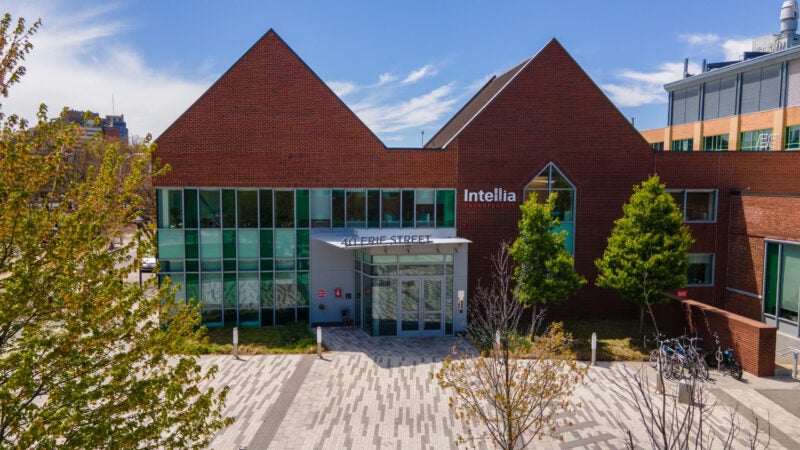

Intellia Therapeutics and Regeneron Pharmaceuticals have reported positive interim data from a Phase I clinical trial of in vivo CRISPR/Cas9 genome editing therapy, NTLA-2001, to treat transthyretin (ATTR) amyloidosis.
The open-label, international, multicentre, two-part trial is designed to assess NTLA-2001 in adult patients with ATTR amyloidosis with cardiomyopathy (ATTR-CM) or hereditary transthyretin amyloidosis with polyneuropathy (ATTRv-PN).
The findings comprise data from 12 adult ATTR-CM patients with New York Heart Association (NYHA) Class I-III heart failure.
Trial subjects were given single, intravenous doses of 0.7mg/kg and 1mg/kg NTLA-2001.
The trial analysed the variation from baseline in serum transthyretin (TTR) protein concentration in these participants.
NTLA-2001 offered a quick and profound decline in serum TTR by day 28 of 93% and 92% at 0.7mg/kg and 1mg/kg doses, respectively.
Additionally, these serum TTR declines lasted throughout the observation time with subjects followed up for two to six months.
NTLA-2001 was also found to be well tolerated at both dosages tested in the trial.
Transient infusion reactions were found to be the only treatment-related adverse event, which was reported in two subjects.
The findings back the potential of the therapy as a single-dose treatment for permanently inactivating the TTR gene and lowering the disease-causing protein in ATTR-CM patients.
An investigational candidate, NTLA-2001 is given systemically, or through a vein, for editing genes inside the body.
Intellia is carrying out this trial under a multi-target partnership with Regeneron. Under the deal, Intellia is leading the development and commercialisation of NTLA-2001.
Intellia president and CEO John Leonard said: “Together with the previously reported data from the polyneuropathy arm of this landmark study, these results strongly suggest that NTLA-2001 could serve as a single-dose treatment regardless of disease manifestation.
“Given the similarly robust TTR reductions observed at the two doses tested, we have selected a fixed dose comparable to the 0.7mg/kg level for evaluation across both arms in the ongoing dose-expansion portion of the study.”
In February this year, the companies reported positive interim data from the Phase I trial of NTLA-2001 for ATTR amyloidosis.
Cell & Gene Therapy coverage on Clinical Trials Arena is supported by Cytiva.
Editorial content is independently produced and follows the highest standards of journalistic integrity. Topic sponsors are not involved in the creation of editorial content.


